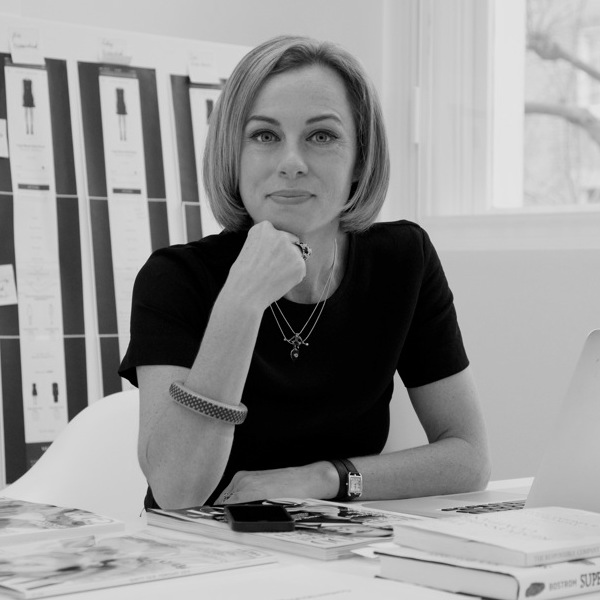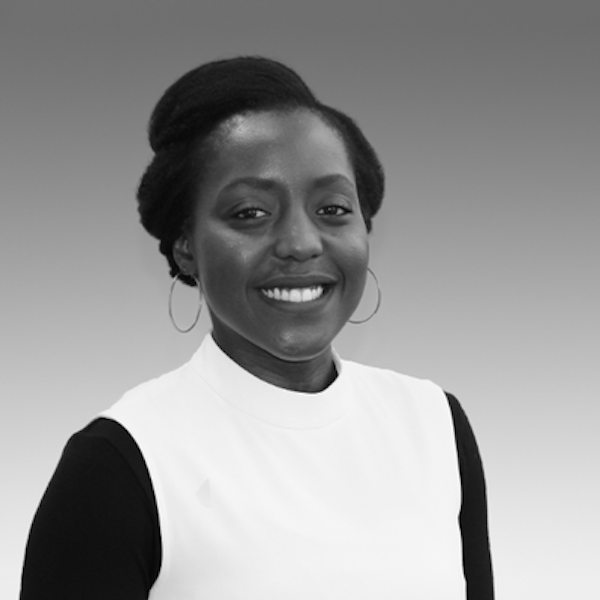Mo White
CEO, CMO + NED
Mo White is the marketing and brand expert who can spot a change in the industry before the industry itself even knows about it. With early days spent brand side and in the world of print media it wasn’t long before Mo joined the budding team at NETAPORTER, launching the online magazine and then the strategy for THEOUTNET.COM.
Her knowledge of the digital first customer has stood her in good stead over a career spent in businesses like Style.com, Google’s Deepmind Technologies and more recently consulting for Glossier, Afterpay and Olivela.
We’re so pleased to hear about her approach to storytelling and brand building, and what’s most important when it comes to leading a team.
As someone with many strings to their bow, can you summarise your skill set for us?
I describe myself as a modern CMO – I’m an expert in owned and earned channels which started with a love of content and storytelling. It enables me to look at the bigger brand positioning and the detail. It means that I see the impact that every fragmented conversation has collectively across every channel.
Being part of the original NETAPORTER growth team made me super aware that every interaction with the customer is an opportunity to tell a brand story which can convert a sale or build a brand advocate; it applies from shop floor, to social, to campaign.
Like any good conversationalist, a brand needs to delight its customer and give them a good reason to stay longer or come back another time.
Since 2009 the number of digital tools and media we have at our disposal has grown exponentially. We had an in-house dev team at NETAPORTER and an integrated marketing/sales team which meant I worked cross-functionally right from the beginning. It was a new approach and we made a lot of mistakes together.
You started out in editorial and your career has really moved with shifts in the industry – tell us a bit about that journey? Have you always consciously been able to see one step ahead?
I started as an editor and a stylist. At a personal level, I’ve learnt that it’s quite unique to creatively operate at a words and pictures level and in business this equates to balanced left and right brain functions. Omni-channel businesses are so complex, today you need to understand tech teams and creative teams and business teams simultaneously so it’s served me well.
In an Instagram age though it’s also key to being future-facing. A lot of fashion editors are compelled to search out the new and anticipate the pace of change. This has always driven me but I’ve also always been really interested in people and acutely aware of when a trend will reach critical mass. People are always changing and so are their moods and experiences and expectations… it’s what makes what I do fun and the pace of tech innovation has a similar pattern.
Have there been any key people who have mentored you along the way? What are the pieces of advice you always bear in mind?
There are so many people who have inspired me in so many different ways. Mentoring isn’t what we are sold. In my case, I see two different categories; people who led by example and gave me incredible opportunities and then people who have reflected back to me something that I couldn’t fully see myself.
In the first category was my tutor at Queen Mary, Margaret Whitford who helped me understand how radical feminism and fashion can overlap; Louise Wilson on the MA at Central Saint Martins and Natalie Massenet at NETAPORTER, all three of whom had high expectations of an individual’s agency.
More recently my mentors in the second category include Mustafa Suleyman at Google and Jane Shepherdson at MyWardrobeHQ and formerly TOPSHOP, who have both helped me to see my own potential by reflecting it back to me and helping grow my confidence.
I’ve also made friends with some fab new business founders such as Grace Gould at the now defunct SodaSays who have inspired me to keep up with the next generation of leaders.
What did you want to be when you were a kid?
In all honesty I didn’t ever think about what I would be when I grew up. I’d always been someone who is in it for the journey and the conversation. I grew up in Cornwall in the 80s in a world that couldn’t be further from where I am now. When I moved to London I had never walked down Bond Street or been to Selfridges for example. I didn’t know you could get a job in fashion that wasn’t on the shop floor.
You studied French Literature at university before getting started in fashion, was that an easy transition to make?
It wasn’t an easy transition at all. I didn’t realise how hard it would be to get that first job out of uni and when I did realise I decided I’d better make sure that the career I chose was one I wanted to do for the rest of my life, and one where I had a chance of success. This forced me to identify my natural advantage and passion.
I hadn’t had to confront who I was before but I realised that fashion was a consistent theme for me and even as a 14 year old in Cornwall I’d copied all the cool looks in i-D Magazine and made them my own. I felt happy and excited when I went to CSM and signed up for everything I could, and also started freelancing to pay the fees.
The last few years have been spent consulting, what makes a client exciting to work with? What are your favourite kinds of projects to work on?
I love problem solving and working with a CEO and leadership team to drive greater brand intentionality and growth – often it’s about spotting the gap in the market for both a customer and a brand, or helping a brand consolidate a position that they already occupy but don’t wholly own. The most fulfilling part is developing a synergy with the founder or CEO and showing them the various paths their brand could take in order to grow further and then helping them put it into practice with the right teams.
What are the career moments you've been especially proud of?
There have been so many and my personal goal posts keep changing. Once it was organising a fashion show for Tristan Webber, then it was sitting front row, then it was meeting Anna Wintour.
I always try and lead by example and have zero tolerance for office politics and will always go out of my way to promote inclusive behaviour and support working mothers so they can be successful. This is why I love building teams.
Right now I would say the decision to join Deepmind and really witness world class talent in action was a personal high – I was massively outside my comfort zone.
What are some of the big changes in the fashion industry since you started out?
When I started as an editor we still faxed copy to the news desk… nothing was digital so you can just imagine the journey from analogue to digital film to social media to AI.
What I would say though is cross-functional team working and how we are learning to scale expert creative knowledge into tools and processes has really developed. Also the revolution in the boardroom: I’m often the only woman there and although it’s hard to see this as a change, it’s obviously the start of a new approach to inclusivity.
You must have had to manage a lot of different characters and personalities throughout your career – from art directors and editors to tech experts. What’s your secret to being a great leader?
I once went on a management coaching course and two things really stuck, the first is delegation. I hire the best team I can get (regardless of past experience and titles) and trust them. Then I focus my effort to create an environment where they can only be successful and try to remove as much “noise” from their everyday work life as possible – unnecessary meetings and process and exposure to office politics.
I always try to find people who are good listeners and when I interview them I always try and get them to demonstrate personal growth and independent thinking. I like to connect with each individual at a personal/political level too on topics outside work, from family to the gym.
What's next for you?
Wow. I love new challenges; driving growth and building teams. It’s not indiscriminate though because I also like to work with teams who are open and thoughtful and have a symbiotic ease. I’m always inspired to be better by the people around me – I will rise to any occasion so love to be stretched and loved to be forced to think hard to solve a problem.
I love running my own business and the independence and variety that it brings. I do miss being part of a diverse team and having exposure to the execution as well as the strategy and really influencing business outcomes. There are so many things I still want to do and problems to solve. How do brands bridge the gap between campaigns and social media? How do we drive frequency from followers? How do we speak to Gen Z around sustainability and inclusivity at a global level…
Since this interview Mo has been hired as CMO at Victoria Beckham.

